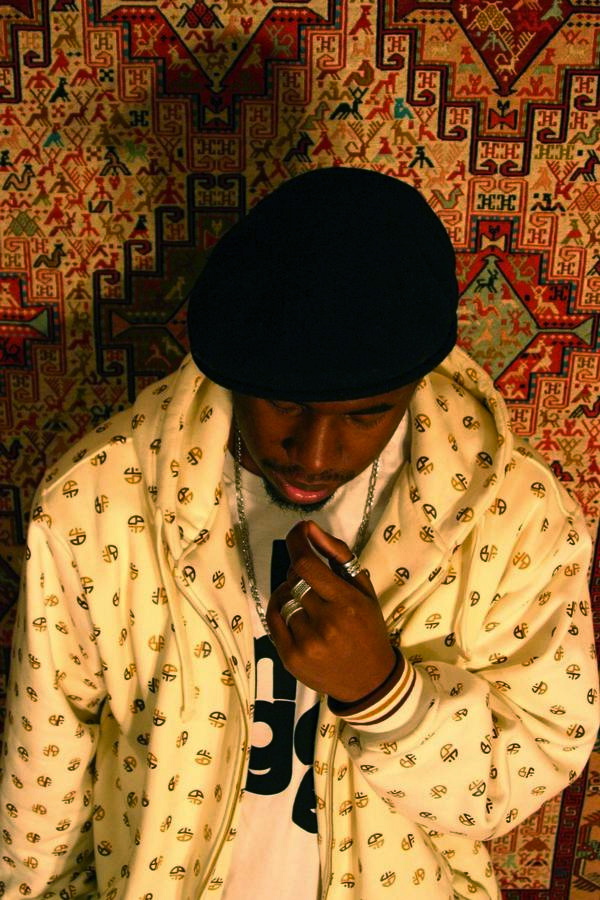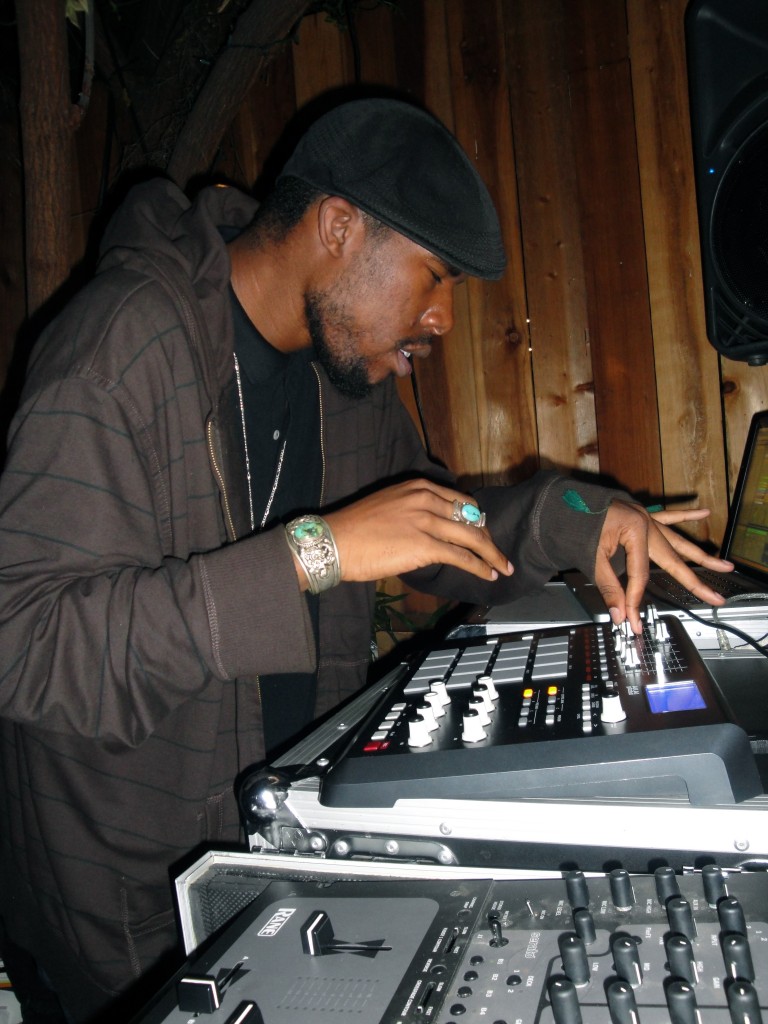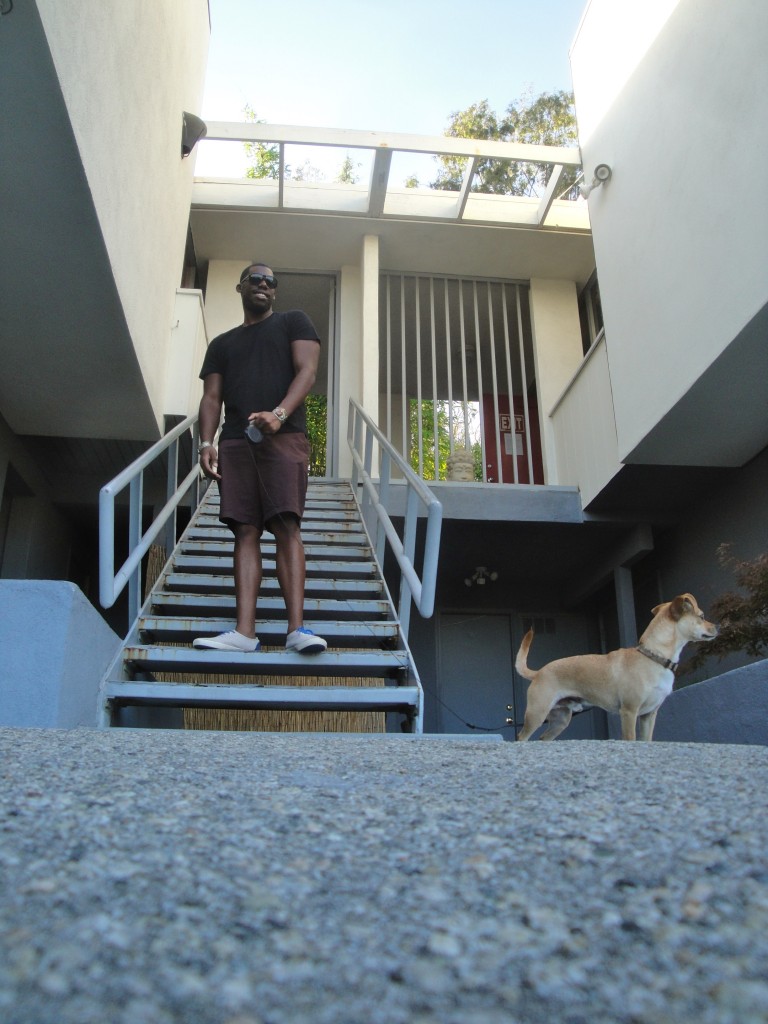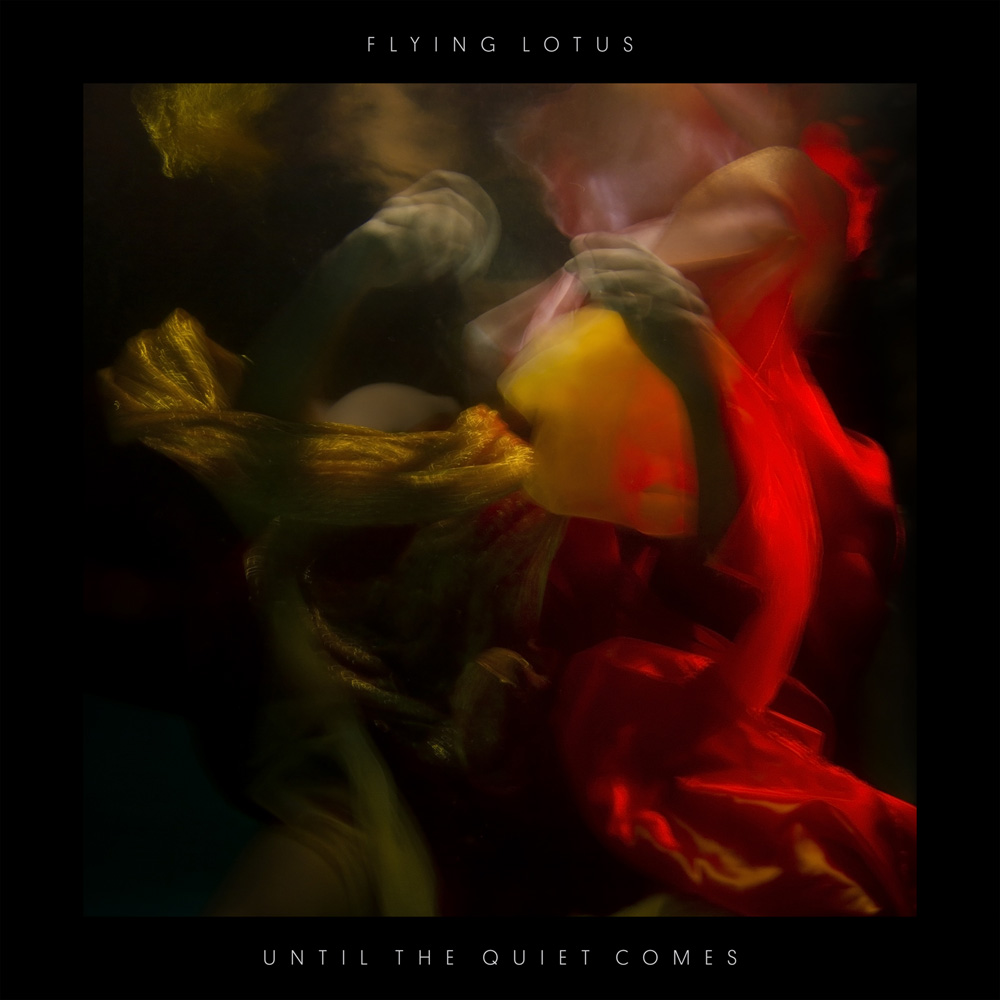EXCLUSIVE INTERVIEW: Flying Lotus Reflects On The Journey Leading Up To Until The Quiet Comes
words/photos by: Ani Yapundzhyan

(Flying Lotus, circa 2007)
He is camera shy, a bit uncomfortable around too many random people, and it’s a refreshing site to see.
Flying Lotus lives in his beats.
As an introverted artist, his energy is saved for his music.
It’s evident when so many different sounds are involved in making his beats yet he lets out so little through his public personality. As most true artists, he’d rather be making music than talking about it.
Years ago, when he lived in Das Bauhaus, a sort of artists’ compound in the valley, he would entertain friends in his small apartment dubbed “Fly Lo’s Electric Candyland.” As his friends sat around watching cartoons, Flotus would be making beats in his cluttered living room while crazy light fixtures and colors would stream along the walls.
These days, older, more successful and much busier, you can still catch him doing the same thing. While there is a pool party crackin’ at his new bigger, more spacious home, he eventually slips away to his studio room to make beats.
No matter what the situation, Fly Lo is focusing on the music.
The proof is in the pudding-type shit.
On a hot afternoon in late August, Lotus, his chihuahua-terrier, Buddy in tow, opened up to Fusicology about the past, the pressure, and his new album, Until The Quiet Comes.
Fusicology: You’ve said that your live shows are “an opportunity to build a universe.” Your crew has pretty much done that with Low End Theory. How much does improvisation goes into the live shows?
Flying Lotus: I remember after a few years of doing Low End Theory, going out and seeing other parties around the world that blossomed after Low End started making an impact, and kids were inspired like, “Yo, we can do that too! We can make a night where you don’t have to play just house music, we can play house and hip hop, fuck that!” And then people started adopting the shit and diversifying their nights and so it’s nice to see that everyone’s hard work in LA and putting these events together is being looked at around the world.
Improvisation, though…for me, it’s super important. It’s kind of why I don’t have a crazy visual show because with a lot of those shows you see, like Amon Tobin, you just press play and the show happens. It’s definitely a big technical…spectacle. There’s no room for trying new things out, so I’ve been trying to figure out how to balance and how to do a really big visual, “technical spectacle” (laughs) and still be able to do it differently every night. ‘Cause that’s so much fun for me.
Fusic: Going back to that, the Low End Theory cats, and especially you, are sort of considered the “first ones” to do this, so do you feel that every time you put something out, there’s that…I don’t want to say “pressure,” I don’t think that’s the right word…
Fly Lo: It is the right word! (laughs.) Every time I’m starting to get close, I have to step back and evaluate where I’m at with everything and second-guess myself, question myself, hate myself, love myself, all that. The whole thing is part of the process. It took a long time to realize all those feelings, it’s natural and it’s part of doing the shit…It’s there but it’s a good problem to have. At least people give a fuck.

(Live set, circa 2009)
Fusic: It’s kind of mysterious how producers make their shit, what’s your process, do you have a ritual?
Fly Lo: I like to think that there is a ritual, but there isn’t. I like to record a lot of sounds-whether they be from records or field recordings-record for like, minutes and minutes and minutes. And not even make anything with it, just record a bunch of shit for like, 2 days. Spend days just recording. And then, I have this new pallet of sounds to work with and it all feels fresh. All these new things to play with, and it gets real inspiring like that, the recording from two weeks ago is now working with a recording from last night and it all makes sense. The process kinda flows like that. I like to build off of rhythms…
Fusic: So you make the tracks on pro equipment with dope speakers, and you hear it at its best. Do you ever listen to the stuff you’re working on in a shitty car, with a wack-ass stereo system with shitty speakers to see how it sounds? Lots of people have shitty cars…
Fly Lo: It kills me, dude. Sometimes I can’t bare it, but yeah, I do try to listen on whatever’s available, especially in the mastering…also, I never wanted to have a pair of Beats By Dre headphones, never. But when I started to see that all the kids were wearing them, I was like, “Well shit, that might be a good reference point.” If it sounds okay on Beats By Dre, that’s probably as good as it’s gonna get for a lot of the kids ’cause they ain’t fuckin’ listenin’ on the monitors that I have at the house now. I don’t think a lot of them do, at least. At best, it’s probably gonna be Beats by Dre. It’s a good reference point in the mixing.
Fusic: What do you use in making your music? Is it a lot of programs, or do you have analogue equipment?
Fly Lo: I use a lot of analogue synthesizers, like Moogs, Rhodes, and Wurlitzer and chord stuff. but I use Ableton sequence everything now and there are a lot of plug-ins within there, too.
Fusic: Your music has been called a lot of things: experimental, spacey. You just won an award for “Best “Dance/Electronica” album. All these names are being thrown around. What are the words that you would use to describe your music? Is there a word that nobody’s used yet? I don’t know how to figure it out.
Fly Lo: (laughs) Neither do I, neither do I…it’s always different. It all depends on who I’m talking to. If there’s an old lady on the airplane who asks me, (in old lady voice) “Oh, so what kind of music do you make?” [I say] “Like jazz, hip hop.” That’s just an easier way to end the conversation. But then if it’s someone who’s like some pseudo-intellectual hipster guy, (takes on douchebag hipster tone) “Well, you know, it’s actually a mixture between Cannes and and uh, Dilla. Something in between that, you know what I’m sayin’?'”
I don’t know, man. I don’t know what the fuckin’ word is. We just call it Beat Music.
People either get it or they don’t, when I say that. If they don’t get it, then we can just talk about jazz and hip hop.

(With Buddy, August 2012)
Fusic: I’m glad you brought up the Dilla reference, because I know that he’s a big influence, and the hipsters are always comparing, “School of Dilla” or “Born of Dilla.” What is the Dilla influence to you?
Fly Lo: WhenI first started producing, at like 15, I was really listing to Dr. Dre. He was like my go-to guy. Whatever he was doing, all about it. Years passed and then it was like, anything DJ Premier does, go-to guy. Then it was Madlib, like “Oh wow, this guy, amazing.”
Then it was, Dilla, go-to guy. It’s funny because when I started getting into Dilla is when I started really getting on, having a name in music. I followed so closely, I could actually hear when he was inspired by Just Blaze, Primo, and Madlib, even with Donuts. ‘Cause I think that Donuts was the biggest homage to Madlib sound.
But as far as my relationship to it at this point more than anything, I respect the man’s output. He had such an amazing output. It’s really hard to find some Dilla beats that you are not into. I really respect his output and the persistence and quality. The quality was always up to par, I think. With whatever he had, even on a beat tape, the quality was always almost ready to go for whatever was gonna be on CD. He didn’t have to mix the beat, it just needed a master and a vocal on it and it was done.
His presence in LA, even when he was alive, was amazing. I remember going to Aaron’s Records-I would go once a week-and be talking to a guy like DJ Sacred, he’d be like, “Dilla came in here a while ago and he got some shit. He got two records.” That was it, you know. Just that idea that he’s choppin’ right now. He already left the store and he’s probably already choppin’. [I’m thinking] “Give me these records, I gotta go home now!” It was definitely inspiring having him here. Even if he wasn’t’ involved in Low End Theory and all that stuff, a lot of the stuff that he built kind of laid the foundation for what we do now.
Fusic: Your new album, Until The Quiet Comes, drops on October 2nd, in less than a month. Tell me whatever you want about it.
Fly Lo: (laughs loudly) Yo man, I spent a lot of time trying to unify all the tracks, all the moments in that album, and I really hope that if people care to hear it, however they chose to hear it, just wait until you have 40 minutes to try and listen to the whole thing in one sitting. The whole way through. The way I meant for it to be heard. The first time at least. Then skip around and find what you like, whatever. That’s all I ask. Even if you fuckin’ download the shit illegally, or whatever. Just fuckin’ listen to the whole thing, the first time, that’s it.
Fusic: To me it gets really good at like 31, 33 minutes. That’s my favorite part.
Fly Lo: Nice. Cool, I’m glad because that’s the part that I always worry about, or I always worried about makin’, is that more introspective part, where you might lose some people because its not hip hop enough or it’s not something…but I feel like it’s the most personal…I’m glad you fuck wit’ it.
Pre-order Until The Quiet Comes here or get it on double-vinyl here.
For more info on Flying Lotus, go here.







